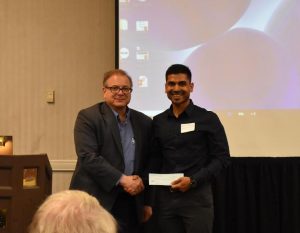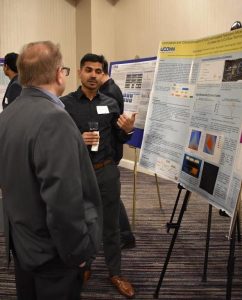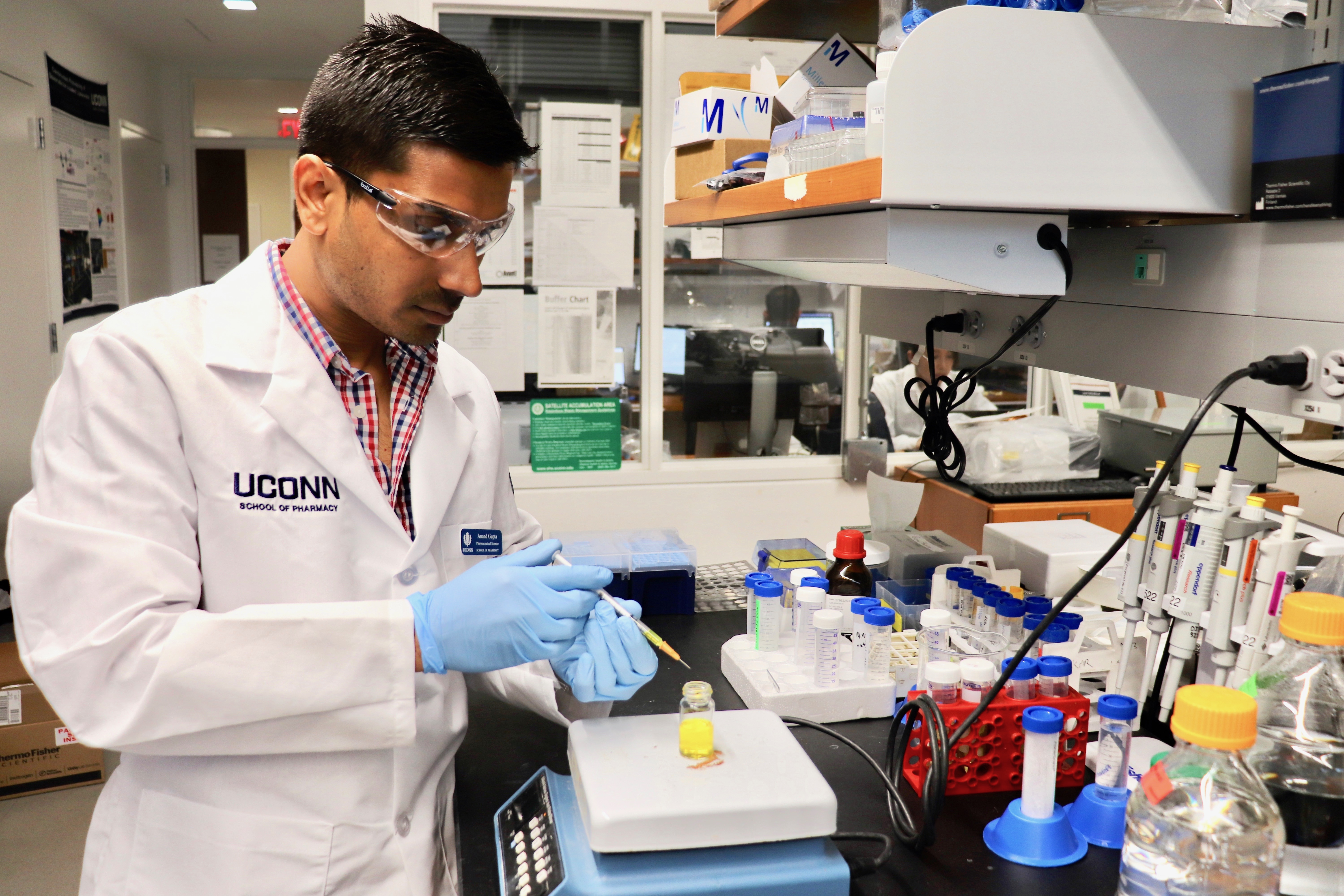
The New Jersey Pharmaceutical Association for Science and Technology (NJPhAST), and its corporate sponsors recently awarded Ph.D. candidate and graduate research assistant Ãnand Gupta with a 2019 Student Scholarship in recognition of his research. It is the first time a UConn student has received this award. The annual scholarship is highly competitive and an important part of a forum that promotes discussion, continuing education and the exchange of ideas on advances in pharmaceutical sciences and technology.
Gupta’s research
 Gupta’s poster “Formulation and characterization of curcumin loaded polymeric micelles produced via continuous processing using Co-axial jet in Co-flow technology” illustrates process optimization using Curcumin as a model drug for his research project which is geared towards creating anti-cancer polymeric nanoparticles using this innovative technology developed in Dr. Diane Burgess’ laboratory at UConn.
Gupta’s poster “Formulation and characterization of curcumin loaded polymeric micelles produced via continuous processing using Co-axial jet in Co-flow technology” illustrates process optimization using Curcumin as a model drug for his research project which is geared towards creating anti-cancer polymeric nanoparticles using this innovative technology developed in Dr. Diane Burgess’ laboratory at UConn.
“Most pharmaceutical companies depend heavily on labor-intensive small batch manufacturing, 50% of which fail to meet quality and rest are combined to form a larger batch with barely passable quality,” says Gupta. “This inefficient process not only causes billions of loss in dollar value and low-quality product but also drug shortages for years.” Gupta’s research points to a way to continuously and consistently manufacture lipid/polymer-based nanoparticles using co-axial flow technology.
Helping patients fight cancer – the ultimate goal
The product can be used as an anti-cancer injectable, a treatment option for cancer patients. Gupta’s research helps progress the field of pharmaceuticals by optimizing a fully automatic nanoparticle-drug manufacturing platform that solves the shortcomings of the traditional method. The economical yet high-quality anti-cancer drug products produced via this technology could potentially help millions of cancer patients globally.
NJPhAST meeting photos via Simerdeep Singh Gupta, Ph.D., Teeva Pharmaceuticals.



